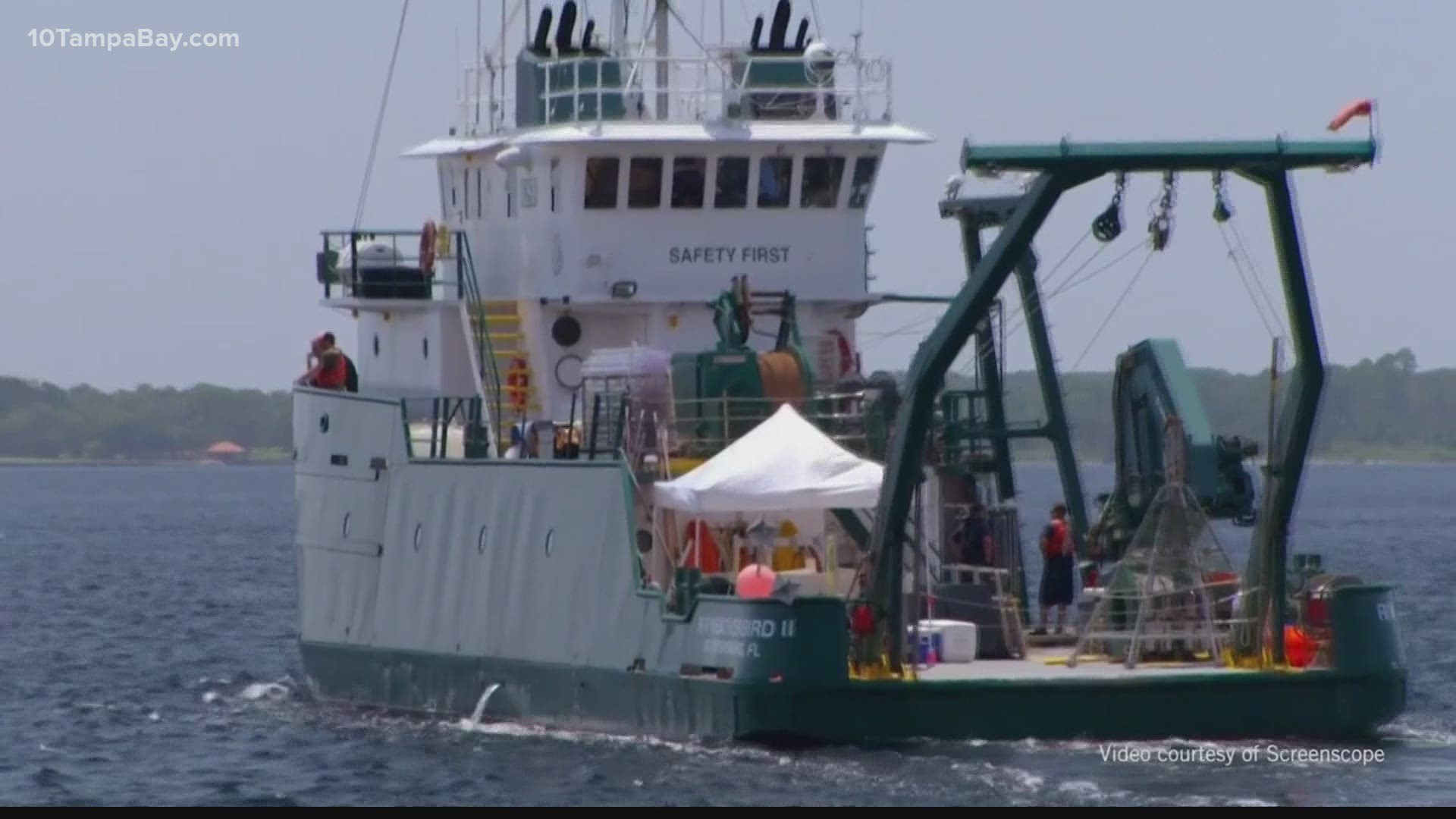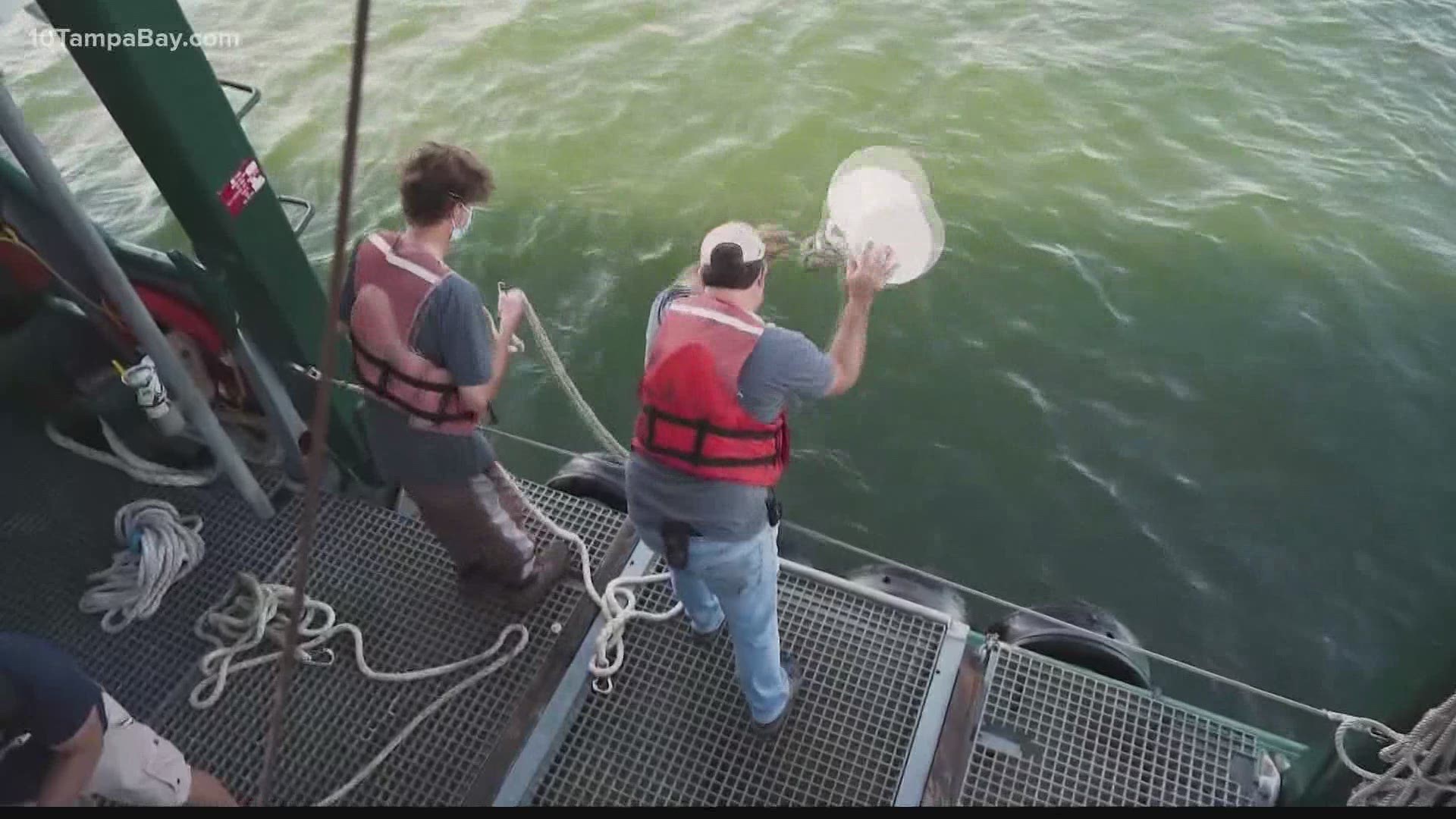TAMPA, Fla. — The wastewater emergency at the former Piney Point phosphate plant in Manatee County has sparked a lot of questions.
The state of Florida says quality tests show there is a high amount of nutrients in the water, including phosphorous and nitrogen. And it's being released at a rate of about 23,500 gallons a minute, in an effort to avoid a larger uncontrolled collapse of the retention pond.
It remains unclear just how that water will affect our environment, ecosystems and marine life. But, scientists from the University of South Florida have set out to find answers.
A team from USF's College of Marine Science launched the first research cruise into Tampa Bay Wednesday to study the environmental impacts of the Piney Point reservoir release.
It’s another mission for the university's Weatherbird research vessel. The boat and its crew are no stranger to monitoring the impact of marine disasters. Red tide. The Deepwater Horizon oil spill. And now – the chemicals discharged at Piney Point.
The team will monitor chemicals from the outflow, "to figure out where they’re going. Whether they might be potentially toxic or not," said Tom Frazer, Dean of USF's College of Marine Science.
The scientists left St. Petersburg to collect water samples, surface sediments and fish from Tampa Bay and Port Manatee.
The two main questions the team will be answering – What happens to water chemistry when wastewater mixes with seawater and how do those changes in water chemistry affect marine life?
"Because, ultimately, if you have a high concentration of nutrients in the water column, that certainly could stimulate phytoplankton growth and ride tide is one type, obviously, of phytoplankton,” said Frazer. "So, their sampling will extend offshore to help make that linkage, if in fact there is one."
Unlike smaller boats, the Weatherbird is equipped with unique tools to process some of the samples and data they collect on the spot.
The scientists will analyze levels like pH, carbon, bacteria, trace metals, fish health. The team says some of those test results could take weeks or even months.
USF will also be collecting samples for partners from the Fish and Wildlife Research Institute, Eckerd College and Florida State University, so more research can go toward supporting the state's efforts to address the environmental impacts of the breach.
COVID-19 is also having an impact.
The crew is limited to daytime operations under COVID protocols. No overnights. And only USF personnel on board.
They do, however, plan to share the data and samples collected with other agencies and schools conducting their own research.
"A lot of this depends on knowing where this water goes, where those nutrients might be delivered and how it might interact with the biological populations that are out there," said Frazer. "So, we will know more."
Watch the USF team set sail below.
What other people are reading right now:
- Piney Point updates: Manatee County gives people the OK to return home
- CDC's new cruise guidelines could create conflict with Florida's 'no vaccine passports' order
- Derek Chauvin trial: Prosecutors continue to build case around Chauvin's use of force
- Social Security COVID stimulus checks should start arriving Wednesday
- Planning a trip? Check out these tips first
►Breaking news and weather alerts: Get the free 10 Tampa Bay app
►Stay In the Know! Sign up now for the Brightside Blend Newsletter


